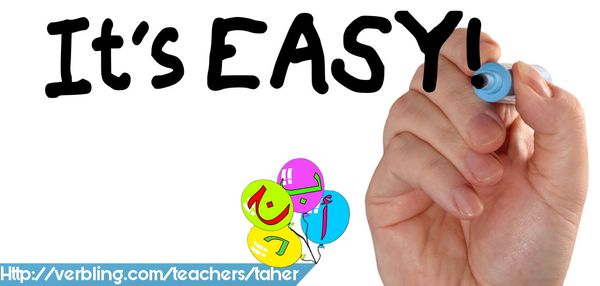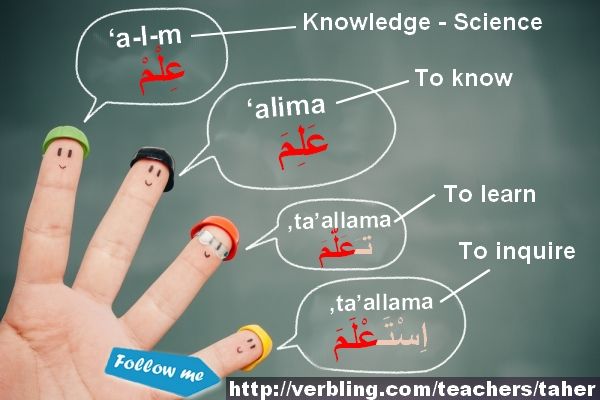How hard is Arabic? It is not hard as you think
Non-native Arabic speakers find Arabic one of the most difficult languages ever, and Arabic is surrounded by myths. Here are just a few:
“The script is impossibly difficult, like hieroglyphics.”
Not true. Arabic has an alphabet of 28 letters. Letters are joined up. There are actually only 5 basic shapes. Writing goes clockwise (except for one letter – Hamza), from right to left, which for many people is easier than writing left to right as it involves pushing the pen, not pulling it.

“Arabic has too many exotic sounds, impossible to learn for foreigners.”
Not true. There are only two or three sounds which are not found in English and these can be learned easily through imitation.
“Arabic has an enormous vocabulary: 400 words for a camel, 200 for a lion, etc.”
Not true. Ancient poetry has a very complex and varied vocabulary. But the vocabulary of Modern Standard Arabic is no more complex than the vocabulary of any other modern language.
“Arabic grammar is impossibly complicated.”
Not true. Its verb system is quite easy. For example, there are just two tenses – past and non-past.
Easy Verb conjugation
If you’ve ever thinked (sorry, thought) about it, English and the other common European languages teached (sorry, taught) in school, are full of irregular verbs. That’s why really young kids will say things like “he hited me” – they haven’t got hold of the idea yet that in English, people don’t always form the past participle using the –ed ending. Arabic has nothing of the sort. The verb conjugation table is bigger than English (with singular, dual, plural, masculine and feminine categories), but once you’ve learned the table for only one verb, you’re done. There are indeed a category of verbs called “weak”, which are sometimes thought of as irregular, but in fact each group of weak verbs (e.g. hollow verbs, defective verbs) follow a completely regular pattern, which is tweaked slightly from the basic verb conjugation table.
Learn one word, get dozens more free
Being a Semitic language, Arabic has a derivation system, whereby from a single root (defined as a three-letter combination), you can derive a whole array of related meanings.

So from the root ‘a-l-m we get the verbs ‘alima (to know), ‘allama(to teach),a’lama (to inform),ta’allama (to learn), ista’lama (to inquire). Furthermore, the way each of these verbs is related to the basic root ‘a-l-m also helps with vocabulary acquisition. So whereas ‘alima (to know) is the simple form verb, ‘allama (to teach) is a 2nd form verb (the middle root letter l is doubled), and we use the 2nd form for causation. So literally ‘allama means to cause someone to know, and therefore to teach. Similarly, ta’allama (to learn) is the 5th form, which is a reflexive of the 2nd form. So ta’allama literally means to cause yourself to know, and therefore to learn. And again ista’lama (to inquire) is the 10th form, which is used for requests. So ta’allama literally means to request to know, and therefore to inquire.
Easy Pronunciation
Although learning Arabic involves learning an entirely new alphabet, once learned, you can benefit from the fact that (1) Arabic is written phonetically, so every word is spelled exactly as it sounds, and (2) there is no correct intonation to learn in Arabic (which in English would have to be read “there is no correct intonation to learn in Arabic”), as all syllables are equally stressed.

Arabic certainly has its fair share of challenges but you might find that it’s a whole lot easier to understand and get along with than you had thought.
Choose your own word order
The World Atlas of Language Structures estimates that around 35% of languages have a Subject-Verb-Object (SVO) word order, like English, (e.g. The dog chased the cat), 41% have an SOV order (The dog the cat chased), and only 7% have a VSO order (Chased the dog the cat).

Although the standard word order in an Arabic verbal sentence is VSO, making it part of this minority, in fact word order in Arabic is very flexible. You can stick to VSO, or you can make it the same as English, SVO. Although this has subtle rhetorical differences in Classical Arabic, in Modern Standard Arabic the two word orders are equivalent.
The European Influence
Arabic is divided into Classical Arabic, Modern Standard Arabic (MSA – used in the media, modern writing etc.) and the various geographical dialects (e.g. Egyptian Arabic). Most Arabic students start their Arabic education by learning MSA, and then expand to the other forms if necessary. Although the basic grammar of MSA is identical to Classical Arabic, it has been significantly influenced by translation works from European languages. As such, a number of phrases and connectors, not to mention vocabulary, have entered the language, making it significantly easier to communicate. For example, the verb to lie in Classical Arabic is transitive (so we get constructions like he lied his friend). In MSA, due to the influence of English and French, in both of which the verb to lie is intransitive (i.e. he lied to his friend), the verb is now used intransitively in MSA too. Although this has purists up in arms, if your goal is to learn MSA, this undoubtedly makes things easier.
17 janvier 2017





